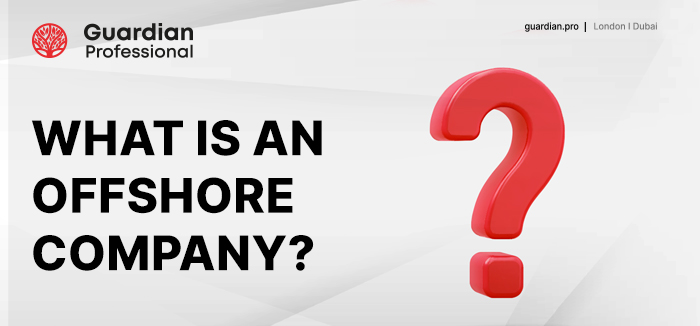Estonia is located in the heart of the Baltic Sea Region and is Europe's fastest-growing market. With a population of almost 100 million, it offers businesses and investors an excellent business environment, stable government, liberal economic policy, moderate costs, making it extremely easy for foreigners to do business.
Estonia's economic freedom is among the best globally, ranking 15th out of 180 nations on the Heritage Foundation's 2019 Index of Economic Freedom. Estonia is also ranked 16th on the World Bank's Ease of Doing Business Index and 18th out of 180 countries on Transparency International's Corruption Perception Index.
Many businesses might be considering establishing an investing firm or fund management organisation there, mainly because Estonia is a well-known place for IT and financial services. However, certain standards must be met to obtain a licence to operate an investment firm or fund management in the country. Let's go over these prerequisites in further depth to know exactly what is required to get any business off the ground.
What are the advantages of conducting business in Estonia?
Estonians are imaginative and entrepreneurial, and the government supports technology and small and new firms. Estonia has one of the highest rates of start-ups per capita in Europe, which is no coincidence. As a result, there are numerous reasons to start a business in Estonia:
E-services and the simplicity with which you can conduct business -
Estonia is the world's most technologically advanced country, while others name it Europe's Silicon Valley. This is because one can do almost anything to operate a business online with no effort. Everything can be done online, including signing paperwork, registering the company, and filling out forms. Estonia has had the most competitive tax system in the developed world for three years in a row, and its unique corporate tax system is one of the reasons for this high ranking.
Individuals and the community -
Estonia's population is modest, but the business climate is vast in every manner, and international companies primarily drive the economy. Although this may mean greater competition, businesses will be quickly accepted into the Estonian community. There are no language barriers because most people speak English exceptionally well.
An environment that is well-developed and cheap to live -
Estonia has a good quality of life, yet it does not come at a higher cost of living. It is, in fact, incredibly affordable, and relocating to Tallinn will almost certainly lower living expenses. In terms of education, environmental quality, social ties, and work-life balance, it is above average. Tallinn is one of the world's most connected cities, with nearly ubiquitous free public Wi-Fi and public transportation.
The ease with which talent can be hired -
Estonia makes it simple for firms to hire qualified employees. For example, in 2017, Estonia introduced the Start-up Visa, which allows non-EU entrepreneurs to travel to Estonia to work for Estonian start-ups, relocate existing start-ups, or establish new ones in favourable conditions. All of this contributes to the ease with which the top talent may be recruited.
Now that we've covered the advantages of doing business in Estonia, let's look at the legal requirements for effectively establishing an investment or fund management firm.
An investment firm's operating licence -
Investment firms specialise in providing investment services to individuals or companies and performing one or more investment operations regularly.
Investment activities are defined as follows in Section 43 of Estonia's Securities Markets Act:
- Receiving and sending securities-related orders. Executing orders for securities under a client's name or on their behalf;
- Dealing in securities for an owned account; providing securities portfolio management; providing investment advice;
- guaranteeing securities or guaranteeing the offer, issue, or sale of securities;
- organising securities offerings or issuances; operating a multilateral trading facility; guaranteeing securities or guaranteeing the offer, issue, or sale of securities;
- Managing a well-organised trade facility
To operate as an investing firm in Estonia, one must first obtain a licence from the Financial Supervision and Crisis Resolution Authority, or Finantsinspektsioon (FSA).
Applying for an investing firm's operating licence -
The Financial Services Authority (FSA) issues and revokes investment firm operating licences. It's vital to remember that these operational licences aren't time-limited, aren't transferable, and can only be utilised by the licensee.
These licences are often provided individually to supply some or all investment services. Keep in mind that investment businesses are only permitted to provide the services for which they are licenced under the licence terms; to provide additional investment services, they must apply for a separate operating licence.
Applicants must submit a written notification and the annexures indicated in the Securities Market Act to the FSA to apply for an operating licence. The following documents are required for the process -
- A notarised copy of the firm's foundation contract or a decision for a newly formed corporation
- A copy of the operating business's statutes, as well as any general meeting vote to alter the regulations and the amended wording of the statutes
- A list of the applicant's shareholders, including each shareholder's name, register or ID code (or date of birth if none is provided), and information of each shareholder's equity holdings and voting rights
- Information on the applicant's significant shareholders
- Members of the applicant's management and supervisory board, as well as its senior managers
- Information on any firm in which the applicant or its management has more than 20% of the equity, including the quantity of the ownership, the business's fields of activity, and the applicant's and each manager's holdings
- Information about the applicant's auditor and those in charge of internal compliance
- The applicant's initial balance and a review of income and expenses at the end of the month before the application for an operating licence, as well as annual reports for the previous three years if available
- Documents attesting to the value of net own money for an existing firm, as well as the auditors' reports
- If a credit institution, fund manager, investment fund, investment firm, insurer, or other body from a third country that is subject to financial supervision owns a majority of the applicant, confirmation from the supervisory institution that the applicant has an operating licence and that its activities, as far as the supervisory institution is aware, are within the law
- The applicant's three-year business plan, which includes the applicant's anticipated activities, organisational architecture, activity locations, IT systems and other technical details, and a description of its financial outcomes
- The applicant's internal bookkeeping procedures or planned bookkeeping regulations
- The Money Laundering and Terrorist Financing Prevention Act's operating handbook, as well as internal guidelines to ensure that the manual is followed
- A document stating that the applicant will make the one-time payment required by the Guarantee Fund Act
After receiving the application and the needed papers, the FSA will decide within two months of receiving the application and no later than six months after receiving the application for an operating licence as an investment firm.
Additional Operating Licence -
If an investment firm wants to offer more services than its operating licence allows, it must apply for an additional operating licence.
The following documents must be submitted to the FSA to apply for such a licence:
- A list of the applicant's shareholders, including each shareholder's name, register or ID code, or date of birth if these are not accessible, as well as information on each shareholder's equity holdings and voting rights
- Documents attesting to the value of net own money for a company that is already up and running, as well as the auditor's reports
- If a credit institution, fund manager, investment fund, investment firm, insurer, or other body from a third country subject to financial supervision owns a majority of the applicant, confirmation from the supervisory institution that the applicant has an operating licence and that its activities are legal to the best of the supervisory institution's knowledge
- The applicant's internal bookkeeping procedures or proposed bookkeeping regulations
- The operating handbook needed by the Money Laundering and Terrorist Financing Prevention Act, as well as draught internal guidelines to ensure that the manual is followed
A fund manager's operating licence -
Fund managers are defined as any corporation that manages one or more funds as its primary and ongoing business activity under the Investment Fund Act. In other words, a fund management company's immediate and ongoing business is to manage a company's assets- or contractual-based fund. As a result, a management company may manage multiple funds and, in addition, to fund management, may provide the following services:
- Managing a securities portfolio within the meaning of the Securities Markets Act;
- Investment advice
- Holding fund units or shares on behalf of customers
- Fund management services for funds whose assets it does not manage within the meaning of the Investment Funds Act
It's vital to remember that the Investment Funds Act distinguishes managers who want to manage public funds, such as pension funds, and managers who wish to manage non-public funds. A fund manager must be licenced to handle any general fund. Fund managers who intend to take euro funds and large-scale alternative investment funds also need operating permits.
Applying for a fund manager's operating licence -
To work as a fund manager, one must first obtain an operating licence. Members of the fund management firm's management must submit a written application to the Financial Services Authority (FSA) along with the papers required by the Investment Funds Act. These documents include the following:
- A copy of the statute for a currently running business, as well as any decisions made by the general meeting to change the statutes and the amended text of the legislation
- A notarised copy of the foundation contract for a new firm, as well as proof that the share capital has been paid in
- A business strategy that complies with the Investment Funds Act's standards
- The applicant's initial balance, as well as a review of income and costs or a balance and profit report as of the end of the month preceding the application for an operating licence, and annual reports for the previous three years, if available.
- Internal rules or proposals for them by the applicant. Members of the management board and supervisory board's first and last names, personal ID codes or dates of birth, place of residence, description of education, complete list of jobs and positions held, and for members of the management board, a list of areas of responsibility, as well as any documentation the applicant considers relevant to demonstrating the applicant's trustworthiness and compliance with the requirements
- Information on the applicant's auditor and internal auditor, including names, addresses, and personal ID codes or dates of birth or registry code if no ID card exists
- The fund's managing director's first and last names, their ID code (or date of birth if they don't have one), their address, a description of their education, a list of jobs and positions held in the previous three years, and a copy of the contract in which they agreed to take on the role of managing director once the fund manager's licence was granted
- A list of the applicant's shareholders, including the name of each shareholder or member, their register code or ID code, or date of birth if they don't have one, and information on each shareholder's percentage of stock ownership and voting weight
- Data on individuals who directly or indirectly control more than 10% of the applicant's voting shares
- Data on any company in which the applicant, its management, or supervisory board members for managing director possess more than 20% ownership, including the size of each shareholder equity capital, a summary of the company's fields of activity, and the size of the applicant's holding of each member
- Documentation proving the value of net own money for an existing business, as well as the auditor's report
- If the applicant is requesting for an operating licence as well as the right to provide the services indicated in Section 9(1) 2 or 3 of the Investment Funds Act, the documentation demonstrating the once-off payment to the Investor Protection Sectoral fund have been made
The FSA will consider issuing an operating licence to the applicant within two months of receiving all of the paperwork but no later than six months after receiving the application for an operating licence.
Hopefully, this tutorial has been of assistance in demonstrating how to obtain a licence to operate a fund manager or investment firm in Estonia. They may appear complicated at first, but if all of the necessary documents and data are gathered, and proper instructions are followed the application can be submitted with no difficulty.













